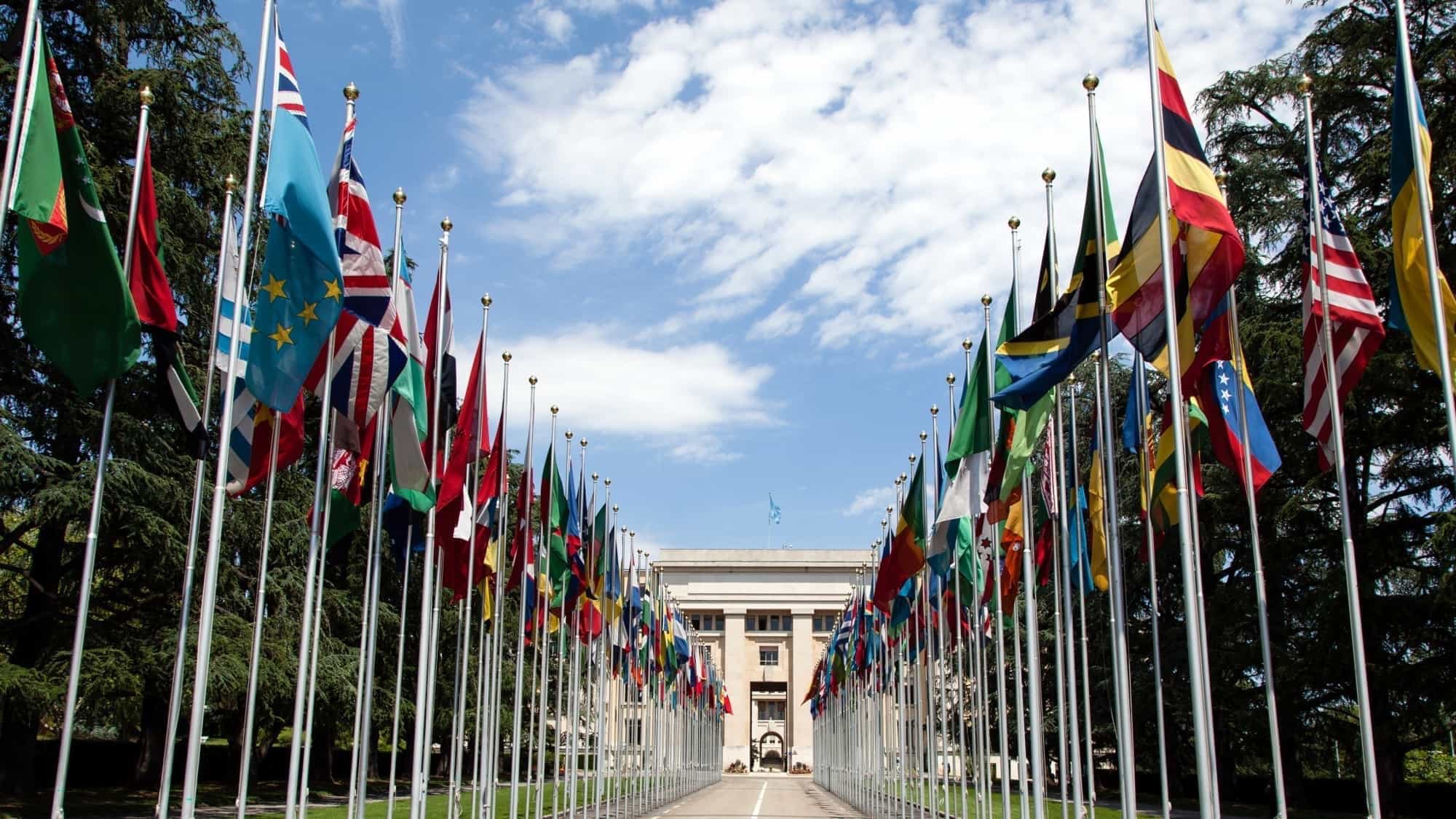International Franchising: Expanding Your Business Across Borders

Introduction: The Power of International Franchising
In today's interconnected global marketplace, international franchising presents a compelling opportunity for businesses to expand their reach and tap into new markets. The allure of taking a successful franchise concept beyond national borders has captured the attention of entrepreneurs and established franchisors alike. This article explores the world of international franchising, delving into its benefits, key considerations, growth strategies, legal aspects, market research, cultural challenges, and success stories. By understanding the intricacies of international franchising, business owners can unlock global opportunities and propel their franchise to new heights.
Benefits of International Franchising
Expanding a franchise business internationally offers a range of benefits that can fuel growth and enhance brand value. First and foremost, international franchising provides access to new markets and a broader customer base. By establishing a presence in different countries, franchisees can tap into the spending power of diverse consumer segments and capitalize on emerging market trends. Additionally, international expansion enables franchise businesses to diversify their revenue streams and reduce dependence on a single domestic market. This not only mitigates risks but also offers a buffer against economic downturns or fluctuations in local market conditions.
Another significant advantage of international franchising is the increased brand recognition and global presence it brings. By expanding into new territories, franchise businesses can raise awareness of their brand, attract international customers, and establish themselves as global players. The expanded network of franchise locations enhances the brand's credibility and builds trust among consumers, fostering loyalty and customer retention across different markets.
Furthermore, international franchising allows for the sharing of risks and costs with local franchisees. Instead of bearing the entire burden of expansion, franchisors can leverage the capital, local expertise, and entrepreneurial drive of franchisees in each country. This collaboration ensures a shared commitment to success and facilitates faster market penetration.
Factors to Consider When Going International
While the benefits of international franchising are enticing, it is crucial to consider various factors before embarking on the journey. One of the primary considerations is thorough market research and analysis. Understanding the target market's demographics, consumer preferences, cultural nuances, and economic conditions is essential for making informed decisions about international expansion. Conducting market research helps identify viable opportunities and evaluate the demand for the franchise concept in different countries.
Legal and regulatory requirements also play a significant role in international franchising. Franchise businesses must navigate complex international laws and regulations specific to each country. This includes compliance with franchise disclosure laws, intellectual property protection, local contract requirements, and any restrictions on foreign investment. Engaging legal counsel with expertise in international franchising can help ensure compliance and mitigate legal risks.
Cultural and language considerations cannot be overlooked when entering new international markets. Franchise businesses must adapt their products, services, and operations to suit local cultural preferences and consumer behaviour. This may involve making modifications to the menu, marketing strategies, or business practices to resonate with the target audience. Additionally, language barriers need to be addressed, whether through translation services or hiring local staff who can effectively communicate with customers.
Another critical factor is the economic and political stability of the target market. Assessing the economic conditions, business climate, and political stability helps mitigate risks and make informed decisions about expansion. Franchise businesses should consider the purchasing power of the local population, economic growth projections, and the stability of the legal and regulatory environment.
Adapting Your Franchise Model for International Expansion
Expanding a franchise internationally requires careful consideration and adaptation of the franchise model to suit the new market. While the core concept and brand essence remain the same, modifications are often necessary to align with cultural preferences, local regulations, and consumer behaviour.
Assessing the scalability and adaptability of the franchise model is crucial. Franchise businesses should evaluate whether their systems, processes, and operational structure can be easily replicated in different countries. Flexibility and customization are key when adapting the franchise model, as it ensures that the business remains relevant and resonates with the local market.
Modifying products, services, and business operations is essential to meet the unique needs of international customers. Franchise businesses should consider localizing their offerings by incorporating region-specific menu items, adapting marketing messages, and tailoring customer experiences. By understanding and catering to the cultural nuances and preferences of the target market, franchise businesses can increase their chances of success.
Effective communication and training strategies are paramount for successful international franchise expansion. Franchise businesses should develop comprehensive training programs that address language barriers, cultural differences, and local market dynamics. Training should focus not only on operational aspects but also on imparting knowledge about the local culture, consumer behaviour, and business etiquette. By equipping international franchisees with the necessary skills and knowledge, franchisors set the stage for success and facilitate a smooth transition into the new market.
Legal and Regulatory Considerations in International Franchising
When expanding internationally, franchise businesses must navigate a complex web of legal and regulatory considerations. Each country has its own set of laws, regulations, and disclosure requirements that govern franchise operations. It is crucial to understand and comply with these regulations to ensure a smooth and legally sound expansion.
Franchise disclosure laws are a key legal consideration. These laws govern the information that franchisors must provide to potential franchisees before entering into a franchise agreement. The disclosure documents typically include details about the franchise system, financial projections, franchise fees, and other essential information. Compliance with these disclosure requirements is essential to establish trust and transparency with prospective franchisees.
Intellectual property protection is another critical aspect of international franchising. Franchise businesses must protect their trademarks, copyrights, patents, and trade secrets in each country where they operate. This involves understanding the local laws regarding intellectual property and taking appropriate steps to register and enforce these rights. Engaging local intellectual property attorneys can provide valuable guidance and support in navigating these complex legal landscapes.
Franchise businesses must also ensure compliance with local contract requirements. Franchise agreements need to be tailored to the specific legal framework of each country. This includes considerations such as termination rights, renewal options, non-compete clauses, and dispute resolution mechanisms. Working with experienced franchise attorneys who understand the nuances of international franchising is crucial for developing comprehensive and legally enforceable franchise agreements.
To protect their rights and interests, franchise businesses should engage legal counsel with expertise in international franchising. These attorneys can provide guidance on compliance, draft and review legal documents, and help resolve any legal disputes that may arise during the international expansion process. By working closely with legal professionals, franchisors can ensure that their international franchising endeavours are conducted within the boundaries of the law.
Market Research for International Expansion
Thorough market research and selection of international markets are fundamental steps in the process of international franchising. Understanding the target market's characteristics, consumer behaviour, competition, and economic conditions is essential for making informed decisions and maximizing the chances of success.
Market research helps identify the demand for the franchise concept in different countries. It involves analysing market size, consumer demographics, purchasing power, and spending habits. This research allows franchise businesses to gauge the potential success of their concept in a particular market and identify regions with high growth potential.
Furthermore, market research helps identify the competitive landscape and potential barriers to entry. Understanding the existing players in the market, their business models, and their customer base enables franchise businesses to develop strategies to differentiate themselves and capture market share.
Conducting thorough market research also provides insights into cultural nuances and consumer preferences. Franchise businesses can identify specific cultural considerations that may impact their offerings, marketing strategies, and operational practices. This understanding allows for customization and adaptation to suit the local market, increasing the chances of acceptance and success.
To conduct effective market research, franchise businesses can utilize a combination of primary and secondary research methods. Primary research involves collecting data directly from the target market through surveys, interviews, and focus groups. Secondary research involves gathering information from existing sources such as government reports, industry publications, and market research studies. By combining these research methods, franchise businesses can gather comprehensive data and insights to inform their international expansion strategy.
Selecting the right international markets is crucial for the success of franchise expansion. Factors such as market size, economic growth, cultural compatibility, legal and regulatory environment, and competitive landscape should be considered. By analysing these factors and aligning them with their growth objectives and capabilities, franchise businesses can identify the most suitable markets for their international expansion efforts.
Managing Cultural Challenges in Franchising
Expanding a franchise internationally brings unique cultural challenges that franchisors must address to ensure a seamless transition into new markets. Cultural differences encompass various aspects, including language, social customs, traditions, business etiquette, and consumer behaviour. Understanding and managing these cultural challenges are vital for establishing a strong foothold and building meaningful connections with customers and franchisees.
Effective communication is key when bridging cultural gaps. Franchise businesses should invest in language training and translation services to ensure clear and accurate communication with international franchisees and customers. This may involve hiring bilingual staff, translating marketing materials and operational documents, and providing language support in customer interactions. By facilitating effective communication, franchise businesses can foster trust, minimize misunderstandings, and deliver exceptional customer experiences.
Adapting to local cultural preferences is essential for franchise success. Franchise businesses should conduct thorough market research to understand consumer behaviour, preferences, and buying habits in the target market. This knowledge enables franchisees to tailor their offerings, marketing messages, and customer experiences to resonate with the local population. By incorporating cultural nuances into their operations, franchise businesses can gain a competitive edge and establish a strong connection with customers.
Training programs should address cultural differences and equip franchisees with the knowledge and skills to navigate local customs and business practices. Franchisees should receive comprehensive training on cultural awareness, sensitivity, and the importance of delivering culturally appropriate experiences. This training not only helps franchisees understand the local market but also promotes respect and understanding among employees and customers.
Franchise businesses must be prepared to adapt their operational practices to align with cultural norms. This may involve making adjustments to menu items, service delivery, marketing strategies, or store layouts to suit local preferences. By demonstrating respect for the local culture and adapting operations accordingly, franchise businesses can build trust and loyalty among customers.
Managing cultural challenges also extends to building relationships with international franchisees. Franchise businesses should establish open lines of communication, provide ongoing support, and foster a sense of community among franchisees. This collaboration enables the sharing of best practices, problem-solving, and mutual learning. Creating opportunities for franchisees to connect with each other and the franchisor can help address cultural challenges collectively and create a support system for success.
Conclusion: Unlocking Global Opportunities through International Franchising
Expanding a franchise business internationally opens up a world of opportunities for growth and success. However, it requires careful consideration, meticulous planning, and a deep understanding of the complexities involved. By recognizing the benefits of international franchising, conducting thorough market research, adapting the franchise model, complying with legal requirements, addressing cultural challenges, and learning from successful case studies, franchise businesses can unlock the immense potential of global markets.
International franchising allows businesses to tap into new customer bases, diversify revenue streams, and establish a global brand presence. It enables the sharing of risks and costs with local franchisees, facilitates rapid market expansion, and leverages local market knowledge and expertise. However, success in international franchising requires a proactive approach, cultural sensitivity, ongoing support, and a commitment to delivering exceptional customer experiences.
By embracing the opportunities and challenges of international franchising, businesses can position themselves for long-term growth and profitability. With careful planning, a strategic mindset, and a commitment to excellence, franchise businesses can navigate the complexities of expanding across borders and establish a successful global footprint.

Post a comment